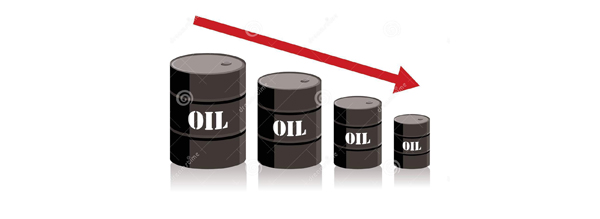
By Simon Falush
LONDON: Oil fell on Wednesday on fresh evidence of growing global oversupply and as investors awaited the outcome of a U.S. Federal Reserve meeting where interest rates are likely to be raised, boosting the dollar and pressuring commodities.
Brent was down 85 cents at $37.60 as of 1229 GMT. On Tuesday the contract closed up 53 cents at $38.45 a barrel in its first gain in eight days.
Analysts are watching for any test of Brent’s December 2008 low of $36.20, with a break below that level taking the benchmark to levels not seen since 2004.
West Texas Intermediate crude futures were down 19 cents at $37.16 per barrel after rising more than $1 on Tuesday. It was supported by looming changes to legislation that are expected to enable exports of U.S. crude oil.
The overwhelmingly bearish sentiment that has pushed Brent from above $115 per barrel last June returned to the fore as fresh evidence emerged that low prices are doing nothing to ease heavy oversupply.
Data on Tuesday from industry group the American Petroleum Institute showed a surprise rise of 2.3 million barrels in U.S. crude stockpiles last week.
A Reuters poll of analysts had forecast a fall of 1.4 million barrels.
Inventory data from the U.S. Energy Information Administration is due on Wednesday.
Investors are also positioned for a rise in interest rates which would support the dollar. This makes oil, which is priced in dollars, more expensive to holders of other currencies.
“The market sentiment is that this will lead to a higher dollar and push commodity prices lower,” said Hans van Cleef, senior energy economist at ABN Amro in Amsterdam.
Markets are already prepared for a 25 basis point increase but will be closely watching the Fed’s policy statement for indications of where rates will go next year.
In the latest Reuters poll of over 90 economists, taken Dec. 4-9, the probability that the Fed will raise rates from near zero rose to 90 percent from 70 percent.
The Federal Reserve is scheduled to release its decision on Wednesday at 2 p.m. EST (1900 GMT).
On Wednesday Brent’s premium to WTI U.S. crude fell to just 27 cents, its lowest since January, and the North Sea benchmark may drop further relative to WTI this week if the U.S. government repeals its decades-old ban on crude exports.
U.S. lawmakers are scheduled to vote on Thursday on tax and spending bills which include a provision to lift the U.S. export ban. To keep the government going, President Barack Obama is certain to sign the bills, paving the way for crude shipments.
“Global producers including Russia and OPEC countries might have to cut prices to compete with U.S. shale producers who could have room to raise prices,” said Jasper Lawler, analyst at CMC Markets.
“The extra competition for market share from U.S. shale can only add to the pressure on OPEC.”
Reuters








